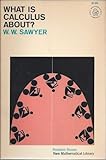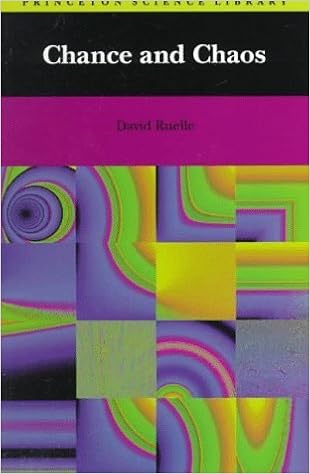| Walter W Sawyer, "What is Calculus About?”, 1961 | |
 | "In mathematics, a certain surprising thing happens again and again. Someone poses a simple question, a question so simple that it seems no useful result can come from answering it. And yet it turns out that the answer opens the door to all kinds of interesting developments, and gives great power to the person who understands it." |
| "Mathematics also is an exploration. As we push out further, we meet new and unexpected situations and we have to revise our ideas. Rules we have used, theorems we have proved turn out to have unforeseen weaknesses." | |
| Ian Stewart, "In Pursuit of the Unknown", 2012 | |
 | “Equations have hidden powers. They reveal the innermost secrets of nature. […] The power of equations lies in the philosophically difficult correspondence between mathematics, a collective creation of human minds, and an external physical reality. Equations model deep patterns in the outside world. By learning to value equations, and to read the stories they tell, we can uncover vital features of the world around us.” |
| “There are two kinds of equations in mathematics, which on the surface look very similar. One kind presents relations between various mathematical quantities: the task is to prove the equation is true. The other kind provides information about an unknown quantity, and the mathematician’s task is to solve it - to make the unknown known.” | |
| Philip J Davis et al, "The Mathematical Experience", 1995 | |
 | “Where is the place of mathematics? Where does it exist? On the printed page, of course, and prior to printing, on tablets or on papyri. Here is a mathematical book - take it in your hand; you have a palpable record of mathematics as an intellectual endeavor. But first it must exist in people's minds, for a shelf of books doesn't create mathematics.” |
| “The definition of mathematics changes. Each generation and each thoughtful mathematician within a generation formulates a definition according to his lights.” | |
| David Ruelle, "Chance and Chaos", 1991 | |
 | "Because mathematical proofs are long, they are also difficult to invent. One has to construct, without making any mistakes, long chains of assertions, and see what one is doing, see where one is going. To see means to be able to guess what is true and what is false, what is useful and what is not. To see means to have a feeling for which definitions one should introduce, and what the key assertions are that will allow one to develop a theory in a natural manner." |
| "Mathematics has deep unity. More than a collection of separate theories such as set theory, topology, and algebra, each with its own basic assumptions, mathematics is a unified whole. Mathematics is a great kingdom, and that kingdom belongs to those who see." | |
| James R Brown,"Philosophy of Mathematics", 1999 | |
 | "Whatever the ins and outs of poetry, one thing is clear: the manner of expression - notation - is fundamental. It is the same with mathematics - not in the aesthetic sense that the beauty of mathematics is tied up with how it is expressed - but in the sense that mathematical truths are revealed, exploited and developed by various notational innovations." |
| “In sum, these are a few of the ingredients in the mathematical image: (1) Mathematical results are certain (2) Mathematics is objective (3) Proofs are essential (4) Diagrams are psychologically useful, but prove nothing (5) Diagrams can even be misleading (6) Mathematics is wedded to classical logic (7) Mathematics is independent of sense experience (8) The history of mathematics is cumulative (9) Computer proofs are merely long and complicated regular proofs (10) Some mathematical problems are unsolvable in principle” ||>> Next Post | |
Quotes and Resources Related to Mathematics, (Mathematical) Sciences and Mathematicians
27 November 2017
5 Books 10 Quotes I: Mathematics in Its Creation
Subscribe to:
Post Comments (Atom)
On Literature: On Surfaces (From Fiction to Science-Fiction)
"In Science, all tends to stir, to change, to form fresh surfaces. All denies, destroys, creates, replaces all. What was ground yesterd...
No comments:
Post a Comment